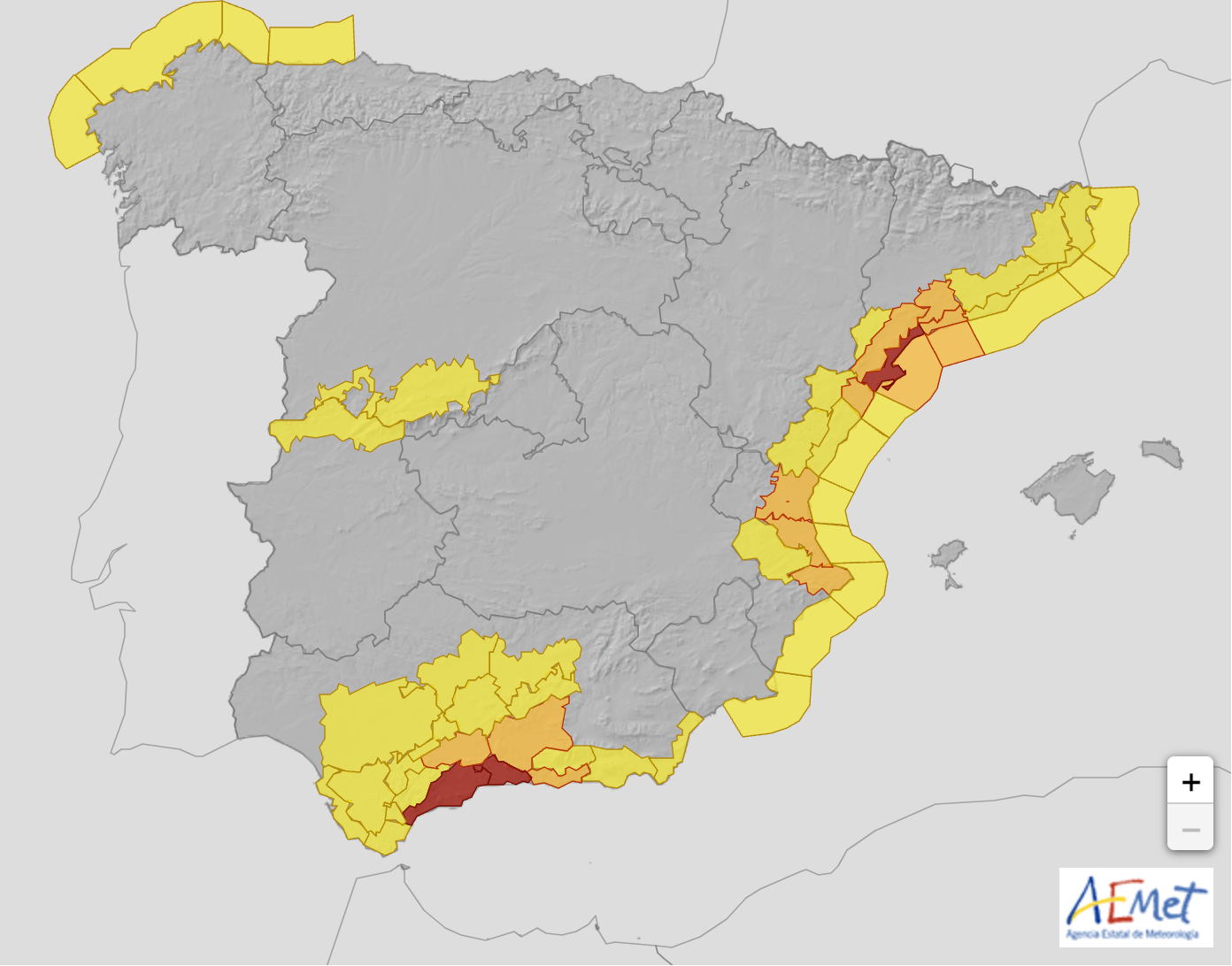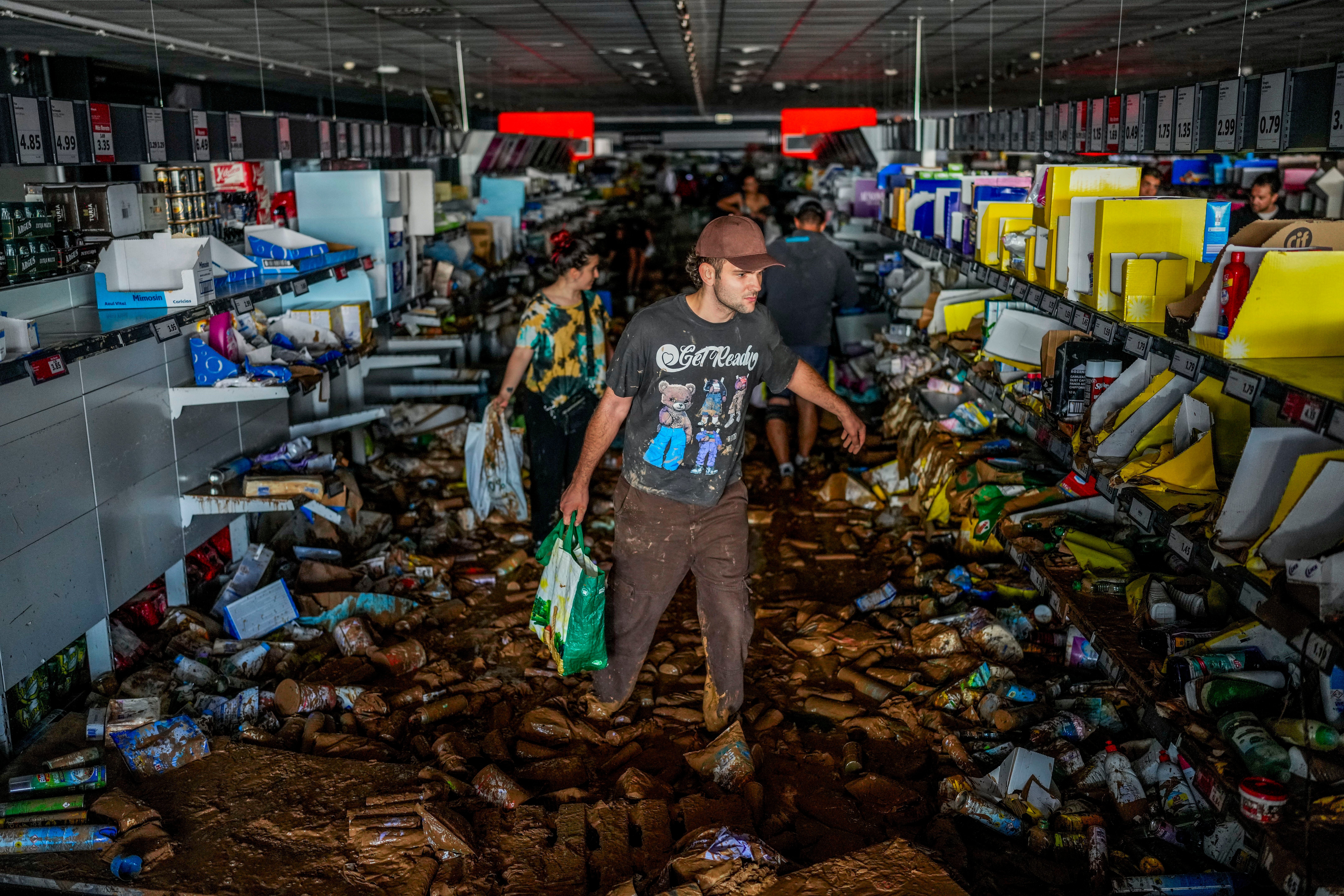
Fresh storms in Spain have left streets deluged and forced schools to close, two weeks after the worst floods in the country’s modern history, which killed more than 220 people and destroyed thousands of homes.
Around 3,000 residents in Spain’s Costa del Sol were forced to flee their homes when authorities issued a rare red alert for heavy rainfall in Malaga. In southern Malaga province, which includes the tourist resort of Marbella, streets were flooded.
Train services were cancelled between Malaga and Madrid and between Barcelona and Valencia.

Valencia’s regional government restricted the use of private vehicles until Thursday in areas hit by last month’s storm, when tsunami-like floods caused severe car pile-ups.
Coastal areas of Valencia were placed under the highest alert on Wednesday evening following forecasts of up to 7in (180mm) of rain within five hours.
Spain’s meteorological agency Aemet issued orange and red alerts for parts of Andalusia, Catalonia and Valencia, warning that prolonged and intense rainfall could push rivers to dangerous levels, threatening lives and buildings.
Catalonia in northeastern Spain was also placed under red alert.

Schools were closed across high-risk areas as residents braced for what officials warned could be days of relentless rain and rising waters.
Antonio Sanz, a minister from the regional government, said: “We have not evacuated entire towns but rather specific areas linked to the riverbank. This decision has been communicated to the government of Spain in order to receive collaboration from the state security forces and bodies.”
The “Dana” weather phenomenon is not expected to be as dramatic as the red alert on 29 October but has the potential to bring continuous rain that could quickly inundate vulnerable areas such as the eastern and southern Mediterranean, the newspaper El Mundo reported.
Instead of moving swiftly through a region, the Dana can stall and result in prolonged, intense rainfall over several days.
The effect of the expected downpour on Wednesday could be severe due to the large amounts of mud already on the ground and the condition of the sewage system, said Rosa Tauris, of Valencia’s emergency committee.
The city council in Paiporta, Valencia, advised flood relief volunteers to avoid any areas under orange alerts today, El Mundo said.
Following criticism of the government’s inadequate response to last month’s flooding, authorities could face intense scrutiny as they manage the latest round of severe weather.

During a visit to Valencia in the immediate aftermath of the floods, King Felipe VI, prime minister Pedro Sánchez, and regional president Carlos Mazón faced public outrage in the town of Paiporta, where residents threw mud and hurled insults, frustrated by what they saw as insufficient state support.
Growing anger over the government’s handling of the crisis sparked a massive protest on Saturday night, with 130,000 people taking to the streets in Valencia to demand Mr Mazón’s resignation.
At the opening of Cop29 in Baku on Monday, United Nations climate summit president Mukhtar Babayev pointed to the recent catastrophes in Valencia and other regions as proof that climate collapse is already unfolding.







